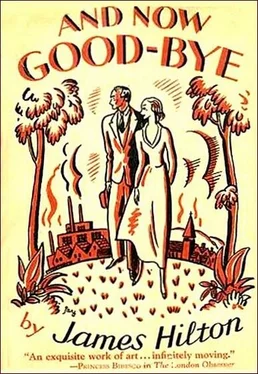He took coffee and a cigarette after lunch (he only very rarely smoked, and never knew quite whether it gave him any pleasure or not); then he looked through the Manchester Guardian , and tried to interest himself in the passing scenes of the countryside; but soon his head was slipping forward again and he dozed fitfully till the train slowed down for the terminus.
After leaving the train he walked to an hotel in Southampton Row, at which he had stayed on the occasion of his first overnight visit to London as a youth. It consisted of three adjacent Georgian houses, a good deal spoiled in the process of conversion into one establishment, and always smelling (more or less, according to the time of day) of cabbage and floor-polish. Its principal and perhaps only merits were that it was cheap (seven-and-six for bed-and- breakfast), respectable, and near the big northern railway stations.
This last was an important consideration for Howat, who reckoned himself unable to afford cabs (he knew little about the prices of things and had never bothered to discover that London taxis were only half as expensive as those in Manchester and about a quarter the cost of hiring any sort of car in Browdley).
Having lunched on the train, he had nothing to do at the hotel except book a room. They gave him a small low-ceilinged, top-floor apartment, overlooking the roof of a garage, sparingly but perhaps just adequately furnished for its purpose, with a shilling-in-the-slot gas-fire, and an electric light in the most difficult of all positions for either tying a tie or reading in bed. Howat hurriedly dumped down his bag; it was already two o’clock (the train had been rather late); he must get along to those engineering people. In the hotel lobby as he descended, the proprietress called to him to sign the register; he did so, writing ‘Howat Freemantle, Browdley, British’ in his usual clear script. He disliked the title ‘Reverend’ and never used it of himself, though he could not prevent others doing so. He disliked it for a certain pretentiousness it seemed to have, just as he never much cared for the word ‘study’ as applied to the room at home in which he worked.
It was a fine day, fortunately, for it had been intermittently on his mind throughout the journey that he had forgotten to bring an umbrella. He boarded a bus outside the hotel and rode to Aldwych; then he changed to another bus and got down at Mansion House station. It was a quarter to three when he arrived at the showrooms and city headquarters of Neal & Sons, Sanitary, Hydraulic, and Central Heating Engineers. In another hour and a quarter, he reflected, he would be arriving at Wimpole Street. Another hour and a quarter of uncertainty, followed, perhaps, by a certainty that would be even more dreadful. He felt his throat like something burning and malevolent that did not belong to him; he was sure now, with a sudden inward lurch of panic, that the verdict would be all that he had feared.. As he gave his name to the clerk in the outside office he heard his own voice as that of another man speaking; he wondered if he would be able to mobilise his wits for this earlier interview. The clerk ushered him through an inner office into the presence of a smartly dressed and very shining, voluble person who shook him eagerly by the hand, offered him an arm-chair, and proceeded to talk in a hearty way about the weather. “And was it raining in Manchester when you came through this morning, Mr. Freemantle? Ha, Ha!” The weather, politics, bad trade, and finally, as if with apologies that such an irrelevant thing should after all be mentioned, this question of a new heating apparatus.
Howat sat back and wished that the chair were not such an easy chair; he was in grave danger of falling into a sleep, or at any rate, into a dream; he kept hearing the other man’s voice and had to wonder whether he were still just talking or had begun to ask questions that demanded answers. “Well, Mr. Freemantle, we could probably do you quite a satisfactory system for a hundred pounds or so—of course I couldn’t give an exact quotation till our man has been up to see the place. I can assure you we’re used to the job just take a look at this catalogue—it contains merely a few examples of churches and chapels throughout the country that have given us their heating contract…” Howat fingered the smooth, glossy pages and had a misty vision of one church after another—plain-looking churches with oblong windows, elaborate- looking churches with stone facings and Gothic stained-glass, churches with stone crosses, churches without stone crosses, churches surrounded by a litter of schoolrooms and vestries, churches with turrets, cupolas, even (so it appeared) minarets, churches with machicolated towers, crocheted spires, and Ionic porticoes, churches enveloped by apparently tropical verdure, churches with the minister standing on the front step, churches of all sizes, denominations, architectures, and degrees of prosperity. It had hardly seemed possible that there could be so many churches in the world, and all, it appeared, were warmed by radiators supplied by Neal and Sons.
Howat said at length: “Well, yes, I think it will be all right. We shall be very glad to have your system.”
“I can promise you, sir, that both you and your congregation will be well pleased with it.”
“Oh, I’m sure, I’m sure.”
“A good heating apparatus, sir, is half the battle, I always think. Warm your church well and people will flock into it. How can people worship when their feet are cold?”
“Quite—oh, quite.” At any other time Howat might have found it refreshing to talk to this enthusiastic young fellow, and even to discuss with him such vital matters as he had just touched upon; but as it was, he felt anxious at all costs to end the interview. He said: “Perhaps, then, you’ll get on with the job as soon as you can, eh?”
The other seemed genuinely grieved by this display of haste. “Would you care to step down into the basement, sir, and see the kind of installations we put in? We have a few models on view and we can also show you the apparatus that actually heats this office, and is heating it at the present moment—identical, of course, with the type we shall he supplying to you. I think you’ll admit, sir, that the temperature of this room is just about what one would wish for.”
Too hot, Howat thought sleepily—far too hot; but he said: “Oh yes, just about right.”
“We can regulate it, of course. A single turn of the knob—like this—”
Howat watched him rather sadly. Was it merely professional, such enthusiasm? Did the youth go home and dream about heating-apparatus? Did heating-apparatus fill a ’niche in his soul? Howat felt: I wish at this present moment I could believe in anything as fervently as this fellow seems to believe in these pipes and radiators…
“Perhaps, sir, you would care to come down and inspect—”
Howat rose and shook his head sombrely. “Well, no, I don’t think I’ll bother, if you don’t mind. I—I have several other appointments this afternoon, and not much time left for them. Your apparatus, I have no doubt, will suit us admirably. I’d better be getting along now.”
“Very good, sir. And when would it be convenient for us to send our man up to Browdley?”
“Your man? Oh yes, about the pipes and things—yes—oh, any time next week would do.”
“Very good, Mr. Freemantle. We will advise you definitely by postcard. Good-bye, sir—very pleased indeed to have met you.”
And in another moment Howat was outside in the street again. It was nearly half-past three.
He boarded a bus at the corner and rode past the Temple and Charing Cross and up Regent Street. By that time it was ten minutes to four, and at Oxford Circus he took to the pavements and began to thread his way diagonally into that stately district almost equally consecrated to music and medicine. He tried to think of the concert he might attend that evening, and of his more immediate rendezvous at Charing Cross at half-past five; but he hardly succeeded in either effort; a greater imminence was on him, a vertical barrier of time beyond which even futurity seemed scarcely to exist. He knew now that this interview with the specialist had been an unrealised background of all his thoughts and emotions for weeks. He felt beyond panic just numb with a secret, paralysing excitement of mind.
Читать дальше











